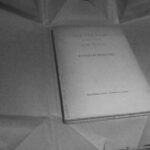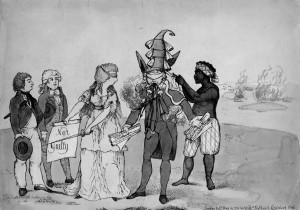Look at this photo. You’ll have to fill it out with your imagination. It could sadly never have been taken. In the middle is the clean-cut Borut Pahor, rumoured to have modelled his way through a political science degree at Ljubljana University. He is now the President of the Republic of Slovenia. On his right is Elkanah Settle, dressed as he was last seen, painted green and imitating a dragon. The tall man at the back is beaky, Kane O’Hara, or “St. Patrick’s Steeple” to his friends (on account of his sloping shoulders). He is said to have been “a very necessary man in every party for amusement”. This is probably why he came to be in the photo. Kenneth Rexroth sits cross-legged on the floor, a little apart from the others, his smoking jacket in a puddle around him. He appears to be holding a glass of warm white wine, with what look like cardamom seeds in it.

Rexroth is my favourite poet at the moment and he wrote that “Poets are very ill advised to write prose for anything but money.” Maybe that’s why they made typewriters sound like cash registers…
Just before lunch on Friday 20th September Edith and I both gave papers at an international conference at Oxford University’s APGRD, organised by Fiona Macintosh and Justine McConnell. Edith’s was about Elkanah Settle (1648–1724) and his hit play The Siege of Troy, “the missing link in the reception of classical epic”. [She has blogged about him here]. A clutch of conference delegates were called upon to act out some scenes from the play. I was “Mob 1” and thankfully had few lines to murder. In spite of our underprepared and mixed ability cast, we (and perhaps the audience) could tell that it’s definitely a funny play. Here’s a real photo.
 The (empty) can of Carlesberg on the desk does not herald the decline and fall of our esteemed Professor of Classics, it is rather a theatrical prop. which was soon to be elegantly employed by the mob attempting to channel the warm spirits of the Trojan proletariat, who, after their masters were either dead or enslaved, rebuilt the sacked city of Troy.
The (empty) can of Carlesberg on the desk does not herald the decline and fall of our esteemed Professor of Classics, it is rather a theatrical prop. which was soon to be elegantly employed by the mob attempting to channel the warm spirits of the Trojan proletariat, who, after their masters were either dead or enslaved, rebuilt the sacked city of Troy.
After our spirited performance of this 17th-century ‘droll’, it was my turn to speak, and I spoke about Kane O’Hara’s Midas. This “English Burletta” (a special kind of comic opera) was written and staged in 1764 to try and win back some audience for the Crow Street Theatre, when its rival was clearing up with an operatic production by a group of Italian singers. O’Hara’s all singing and all dancing burletta told the story (from Ovid) of when King Midas (of golden touch fame) judged Pan the winner of a musical competition between Pan and Apollo. For having such lousy taste Apollo turns Midas’s ears into those of an ass. The operetta, now pretty much forgotten – just like Settle’s The Siege of Troy – was hugely successful for nearly a century. It was so famous that its Ovidian iconography (perhaps also mediated by Shakespeare et al.) filtered almost immediately into cultural and political discourse. An example of this can be seen in a cartoon of William Wilberforce, who was thought (by some) to be stirring up slave revolts in the West Indies, with his “irresponsible” abolitionary activism.
It is becoming more and more apparent that the way that scholars, literary figures and booksellers have shaped what we read, and think of, as “Literature” has seriously skewed our understanding of our own cultural history. When such important cultural products as Settle’s The Siege… and O’Hara’s Midas fade from our history in favour of other products, vouched safe by often class-based notions of quality. What is good? Good for whom, and what? And why?
Who’s the guy sat on the floor of our photo? American poet and translator Kenneth Rexroth (1905-1982). I can think of few writers of the erotic lyric who even get close to his. I’d not read him for years, and now, in rediscovering him, I’ve found that he not only engaged deeply with classical poetry, but was also largely self-educated and an active member of the International Workers of the World. My encounter on him will come shortly.
Speaking of encounters, we’ve received some fantastic ones over the past few months. Jacqueline Hylkema (Leiden) has given us one on the fascinating French fraud, George Psalmanazar. Rosie Wyles (King’s College, London) has sent in one on the “dangerously moderate revolutionary” Marie-Joseph Chénier. In addition to these, Edith’s encounter introducing the playwright, Nathanial Lee, has recently attracted a 5* review [!], and my micro-doc on the magnificent Sandow stimulated some interesting discussion. It’s always a pleasure to hear what people make of our encounters and videos.
 Now, I haven’t said much about Borut Pahor. Why is the Slovenian president in the frame? Well, I just learned today that he “has agreed to grant his honorary patronage to the international symposium on “Classics and Class: Teaching Greek and Latin behind the Iron Curtain.” This is not our own Classics and Class project, but an independent initiative, with the same name, taking place this weekend in Ljubljana, organised by Elzbieta Olechowska (Warsaw) and David Movrin (CEU). I am giving a paper at the symposium, offering the British perspective on Classics and Class, and will learn a great deal about Eastern European attitudes towards classical culture and its relationship with social class. Who knows, I might even meet President Pahor? I’ll report back from that trip in my next blog post. Please continue to send us encounters and ideas for encounters.
Now, I haven’t said much about Borut Pahor. Why is the Slovenian president in the frame? Well, I just learned today that he “has agreed to grant his honorary patronage to the international symposium on “Classics and Class: Teaching Greek and Latin behind the Iron Curtain.” This is not our own Classics and Class project, but an independent initiative, with the same name, taking place this weekend in Ljubljana, organised by Elzbieta Olechowska (Warsaw) and David Movrin (CEU). I am giving a paper at the symposium, offering the British perspective on Classics and Class, and will learn a great deal about Eastern European attitudes towards classical culture and its relationship with social class. Who knows, I might even meet President Pahor? I’ll report back from that trip in my next blog post. Please continue to send us encounters and ideas for encounters.
h



